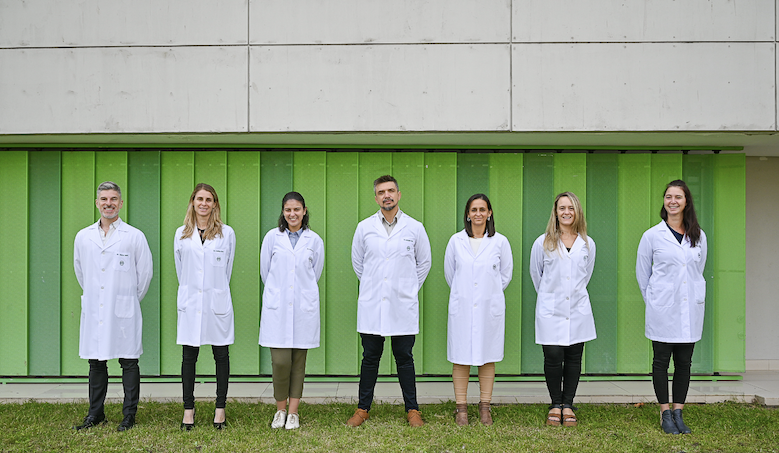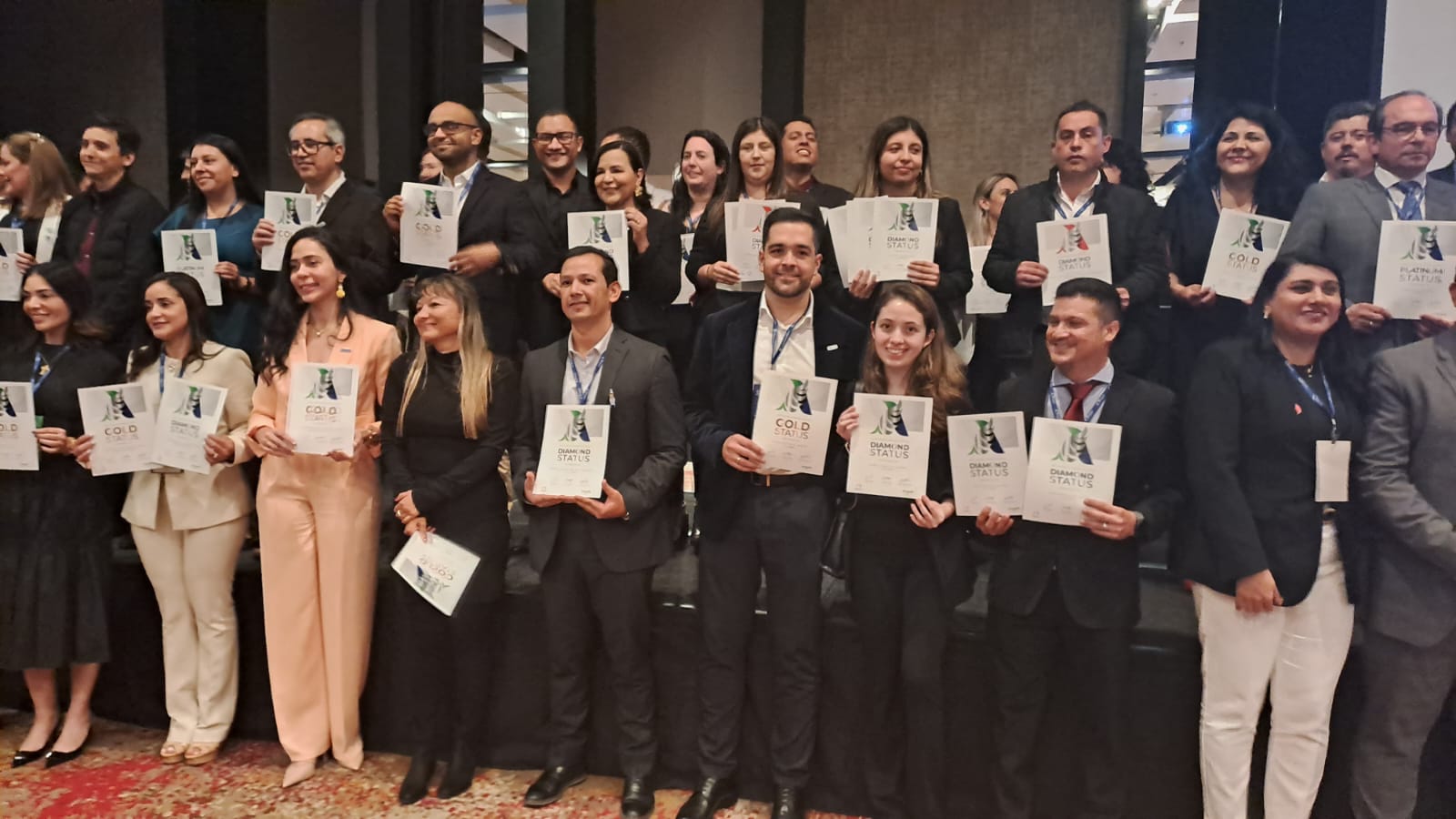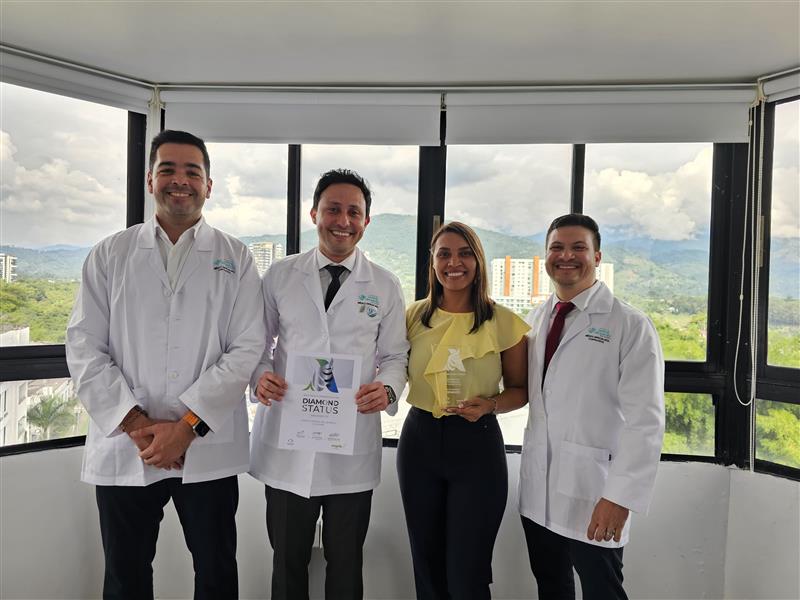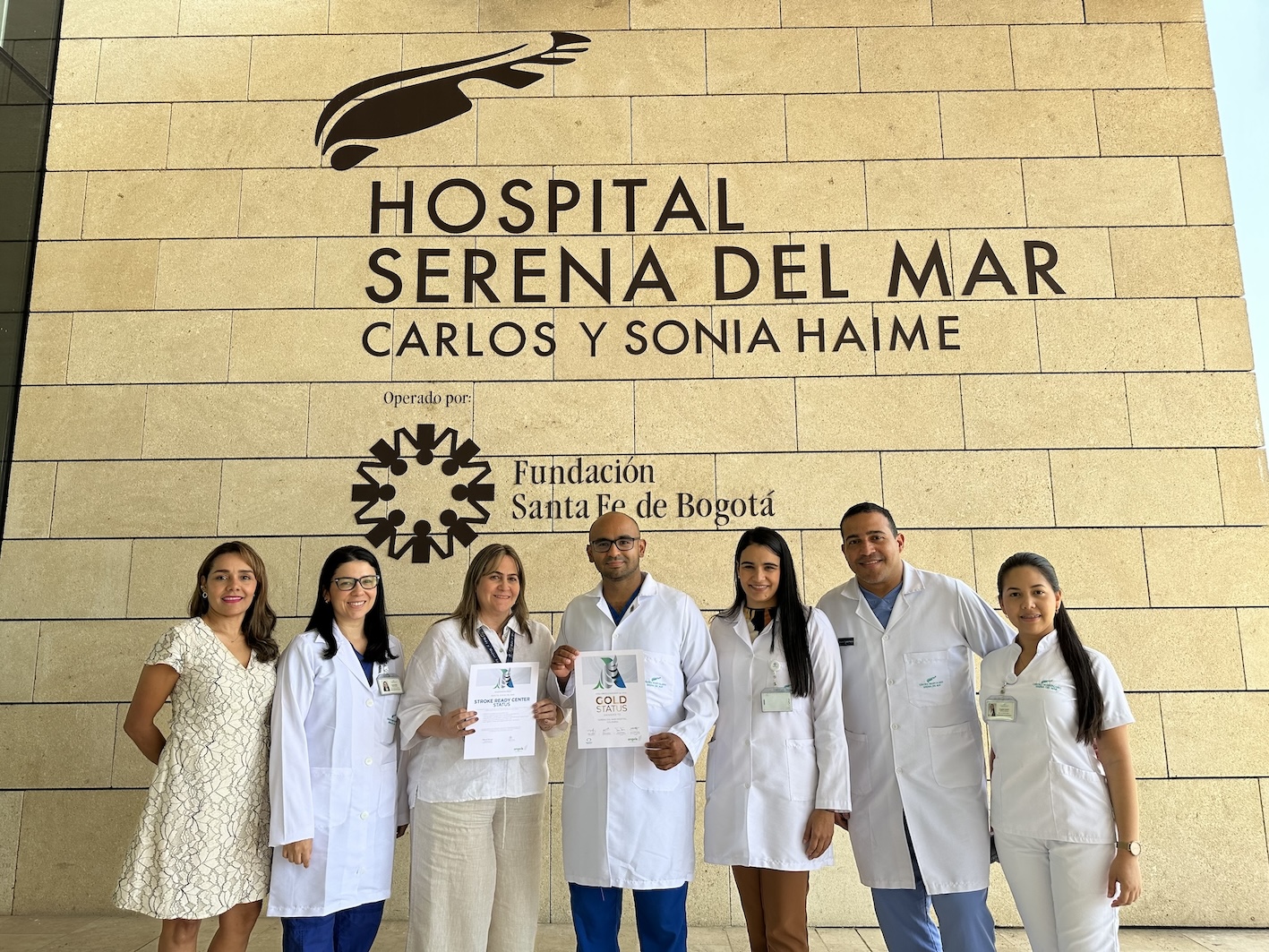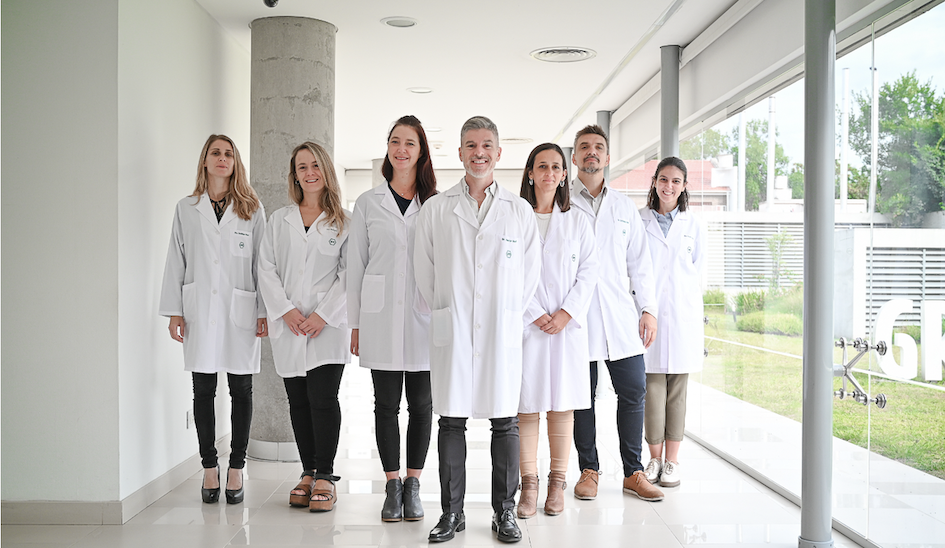
La 2 mai 2022, Dr. Ignacio Cigalini, cardiolog intervențional și coordonator al codului AMI la Spitalul Privado de Rosario din Argentina, efectuează o înlocuire transcateter a valvei aortice (TAVR) la un bărbat în vârstă de 63 de ani.
O procedură TAVR, în care un cateter este utilizat pentru a fixa o valvă de înlocuire peste cea veche, are mai multe avantaje față de intervenția chirurgicală convențională, dar prezintă un risc crescut de accident vascular cerebral acut. În ciuda fiecărei precauții, pacientul suferă un AVC.
La ora 13:12, un vorbitor din Spitalul Privado de Rosario anunță Codul AVC.
Timpul până la tratament va fi de 10 minute record, timp în care Dr. Guadalupe Maria Bruera, șeful departamentului de neurologie al spitalului, va lua mai multe decizii care vor schimba viața.
AVC intraspitalicești vs. AVC cu debut comunitar
Până la 17% din numărul total de accidente vasculare cerebrale au loc în timpul spitalizării în cadrul îngrijirii acute la pacienții internați pentru un alt diagnostic sau o altă procedură, conform unui articol publicat în 2015 de Dr. Ethan Cumbler de la Universitatea Colorado School of Medicine. Între jumătate și două treimi dintre acestea sunt perioperatorii și periprocedurale, pacienții cu intervenție chirurgicală cardiacă prezentând cel mai mare risc.
Accidentele vasculare cerebrale intraspitalicești au rezultate substanțial mai grave decât accidentele vasculare cerebrale cu debut comunitar și nu numai pentru că acestea apar la pacienții mai în vârstă, deja bolnavi și care prezintă rate mai mari de contraindicții medicale sau chirurgicale pentru tromboliză. AVC intraspitalicești tind, de asemenea, să aibă întârzieri mai mari la evaluare și tratament.
O declarație științifică din februarie 2022 din partea Asociației Americane de Cardiologie citează dovezi conform cărora pacienții cu AVC intraspitalicesc au un interval semnificativ mai lung de la recunoașterea simptomelor la neuroimagistică, comparativ cu pacienții cu AVC din unitatea de primiri urgențe (4,5 ore față de 1,2 ore). Un studiu din registrul Get With The Guidelines a descoperit că, în comparație cu AVC-ul de debut comunitar, timpul care a trecut de la recunoașterea AVC-ului la tromboliză a fost, de asemenea, mai lung, la 81 de minute față de 60 de minute.
Motivele pentru aceasta includ atribuirea greșită a simptomelor de AVC bolii pentru care pacientul a fost spitalizat, efectului sedării sau anesteziei sau efectelor secundare ale medicamentelor. Spre deosebire de pacienții cu AVC cu debut în comunitate, victimele AVC intraspitalicesc nu intră, de asemenea, în sistem prin intermediul departamentului de urgență, cu cultura sa de urgență. Mai degrabă, este probabil ca aceștia să fie îngrijiți de personal care nu are experiență în diagnosticarea AVC-ului și care este mai puțin conștient de importanța de a acționa rapid.
Zece minute prețioase
Cetățanul de 63 de ani din Rosario este unul dintre norocoși. Dr. Cigalini, ca toți ceilalți de la Spitalul Privado de Rosario, participă în mod regulat la instruirea privind codul AVC care are loc în fiecare lună și este foarte conștient de importanța acțiunii imediate în caz de AVC. Când recunoaște că pacientul său manifestă afazie, activează Codul AVC fără să ezite.
Pe traseul de la laboratorul de cath la camera de imagistică la o distanță scurtă, o evaluare NIHSS efectuată de neurologul de serviciu, Dr. Guadalupe Bruera, obține un scor de 12. Utilizând rezonanțaangiografică magnetică, durează doar două minute pentru a exclude sângerarea și a localiza ocluzia în segment de la M3 la artera cerebrală medie stângă. Recunoscând că cheagul nu poate fi atins prin trombectomie chirurgicală, Dr. Bruera ia decizia de a tromboliza. Își administrează singur bolusul. Restul perfuziei va avea loc în secția ATI unde pacientul va rămâne timp de 60 de minute.
Dr. Cigalini a rămas prezent pe tot parcursul studiului, furnizând date critice care informează decizia terapeutică și gestionarea comunicării cu familia pacientului.
Întregul proces, de la activarea codului de AVC la tratament, a durat doar 10 minute prețioase.
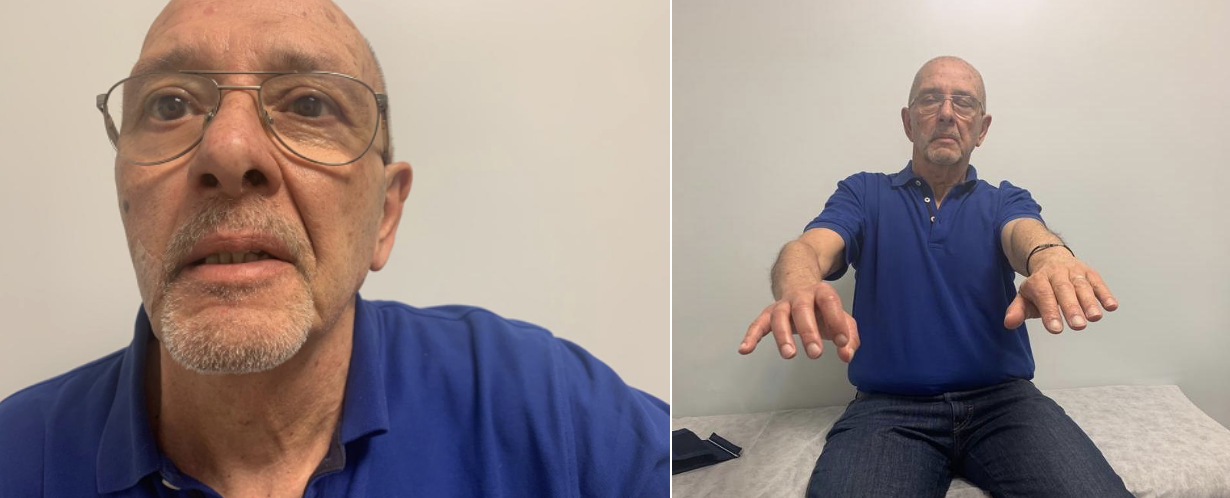
Munca tuturor trebuie respectată
Spitalul Privado de Rosario admite aproximativ 219 pacienți cu AVC pe an și are un timp mediu de la sosire până la administrarea tratamentului injectabil de 40 de minute pentru AVC cu debut comunitar. Timpul său mediu până la tratament pentru AVC intraspitalicesc crește tendința la 35 de minute. Explicația constă într-un protocol al codului de AVC clar structurat și într-o muncă în echipă transdisciplinară, spune Dr. Bruera. Pentru gestionarea optimă a AVC în spital, instruirea regulată privind codurile AVC implică personal din toate departamentele din întregul spital. Drept urmare, există o mare conștientizare a necesității de a acționa cu viteză atunci când se suspectează un AVC și toată lumea cunoaște exercițiul atunci când este anunțat codul AVC.
O cale extrem de organizată pentru pacient minimizează întârzierile la tratament, iar simulările facilitate de Inițiativa Angels ajută la identificarea oportunităților de îmbunătățire, dar lucrul în echipă este factorul decisiv, iar o ierarhie aplatizată ajută la mobilizarea tuturor membrilor echipei.
„Unul dintre aspectele fundamentale ale AVC-ului este transdisciplinaritatea”, spune Dr. Bruera. „Zece până la 15 cadre medicale participă la un cod de AVC, împreună cu personalul medical și administrativ.
„Fiecare membru al acestei echipe trebuie să se simtă împuternicit – ceva ce nu provine doar din instruire, ci și din exemplu. Deși există o persoană care coordonează codul AVC, activitatea tuturor trebuie respectată.
„O echipă de AVC de succes este construită pe principiul că dezvoltarea cunoștințelor este întotdeauna colectivă. Nimic nu poate fi învățat individual.”
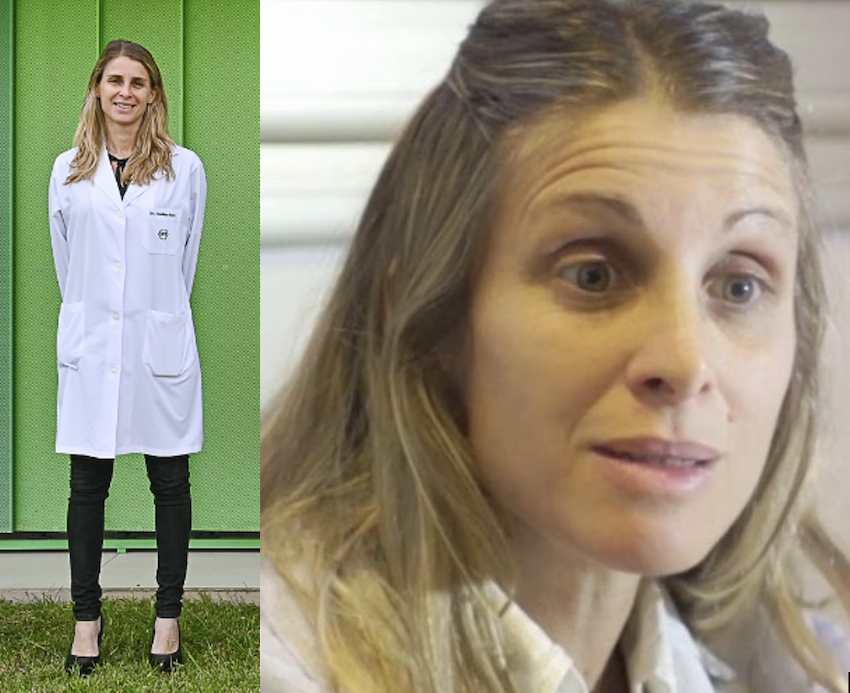
Bunătatea fundamentală a ființelor umane
Este evident că „miracolul” de 10 minute al Rosario este doar parțial rezultatul organizării și al instruirii. Succesul acestei echipe de AVC este, de asemenea, în principiu, înrădăcinat, iar principiile care guvernează gestionarea AVC-ului la HPR sunt inseparabile de valorile personale ale Dr. Bruera.
Ea se descrie ca fiind „o persoană care încearcă să învețe zilnic” și spitalul ei ca un mediu care facilitează învățarea: „Învăț multe de la pacienți, asistente, secretari și colegi”.
Calitatea medicinei practicată la spitalul ei și, în special, de colegii ei de la Cardiologie, este unul dintre motivele pentru care a ales-o pe Rosario în detrimentul oportunităților de a-și construi cariera în altă parte.
Ea spune: „Îmi iubesc țara foarte mult, chiar și cu toate defectele sale și, în special, cu orașul Rosario.”
Dragostea față de țară și învățarea sunt o moștenire familială. Dr. Bruera și frații săi au fost crescuți de o mamă psiholog și un tată neurolog care sunt amândoi profesori. Ea spune: „Am crescut într-o familie ale cărei valori de bază au reflectat beneficiile fundamentale ale ființelor umane, cum ar fi susținerea și respectul față de ceilalți.”
Aceste valori găsesc expresia în programul de AVC de la Spitalul Privado de Rosario și, împreună cu o cale organizată și un proces decizional de fracțiune de secundă, pot uneori să ofere un miracol în 10 minute.
